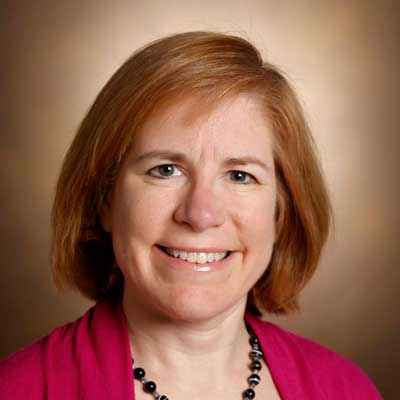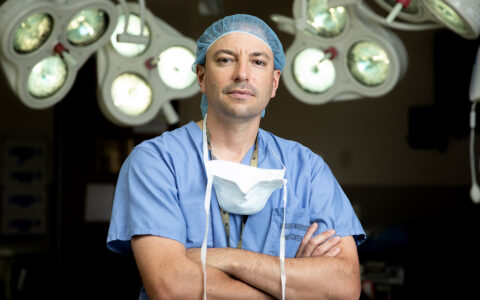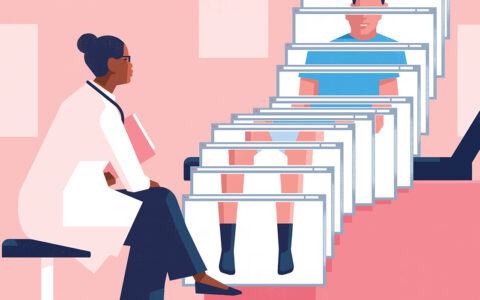A new research project at the Vanderbilt Kennedy Center for Excellence in Developmental Disabilities will set out to define the research questions that matter most to neurodiverse people by including them from the outset.
“We need to hear from people with disabilities, what they think we should be studying, rather than deciding ourselves,” said Beth Ann Malow, M.D., Burry Chair in Cognitive Childhood Development at Vanderbilt, who will co-lead the project. “We want to include them from before the beginning.”
The project, funded by the Patient Centered Outcomes Research Institute, aims to address the needs of people with disabilities such as autism or Down syndrome, including adults and teens who are transitioning from youth to adulthood.
Addressing the Most Pressing Issues
Ensuring that the most important questions are explored demands the inclusion of neurodiverse young people, as well as their caregivers and clinicians, Malow explained.
“We have to respect what disability activists say – ‘nothing about us without us,’” she said. “For people with disabilities to advise us, we need to help them understand what research is about.”
Topics to go over might include what makes a good research question, how researchers share information with the public and even the role of the IRB.
“We need to hear from people with disabilities, what they think we should be studying, rather than deciding ourselves. We want to include them from before the beginning.”
The value of offering their time to researchers also needs to be explained. “For example, if we’re going to study eye movement patterns we should be able to explain why eye movement patterns matter in the lives of people with disabilities,” Malow said.
Stage One: Assembling Advisors
Malow and project co-leader Susan Brasher, Ph.D., an assistant professor at Emory University, have organized the work in three stages. Stage one involved assembling a regional advisory board: 14 people from Tennessee, Georgia and Missouri, including people on the autism spectrum; parents of individuals with autism, Down syndrome or other disabilities; and clinicians and researchers.
“This group will be our sounding board, offering us advice as we do dress rehearsals for the project’s second stage, which is the meat of it,” Brasher said.
“We have to respect what disability activists say – ‘nothing about us without us,.”
Valuing Lived Experience
The advisory board includes Laura Coleman, a research coordinator at the Marcus Autism Center in Atlanta and a disability activist who is on the autism spectrum. She wrote a letter to the sponsoring research institute in support of the grant.
Decrying the extent to which neurodiverse people have been excluded from research, she wrote: “A person with a cognitive impairment is no less of a person, and it doesn’t mean they have nothing to offer society.”
Unlike many other health problems, Coleman explained, people with cognitive disabilities have generally been excluded from obtaining their own doctoral degrees and designing their own research inquiries, making inclusivity all the more important.
“In 15 years, I would love to see someone with Down syndrome study their own condition,” Coleman said.
“We’ll decide together how we want to move forward, defining with the people who have disabilities what research matters to them, and then applying for funding.”
Stage Two: Deep Dive Learning Sessions
For the second stage, a series of 60- to 90-minute online meetings will be scheduled twice monthly for six months. Once a given topic is presented – such as, what is a hypothesis? — all participants will engage with the material during breakout room exercises and group discussions.
“We can’t just lecture to people,” Malow said.
This second stage will use a framework previously developed through Project ECHO (Extension for Community Healthcare Outcomes). Malow and Brasher’s project expands on the original ECHO idea, which brought together subject matter experts including clinicians to grapple with other challenging health problems, including COVID-19 and substance abuse.
Stage Three: Choosing Directions for Future Research
During the project’s third stage, the group will define future research priorities.
“We’ll decide together how we want to move forward, defining with the people who have disabilities what research matters to them, and then applying for funding,” Malow said.
Coleman hopes to see more research into how society can create safe social environments for neurodiverse adults to help counteract their frequent isolation. This interest grew, in part, from her undergraduate experience in the Best Buddies program, which pairs neurotypical undergraduates with same-age peers who have a developmental disability, such as autism.





